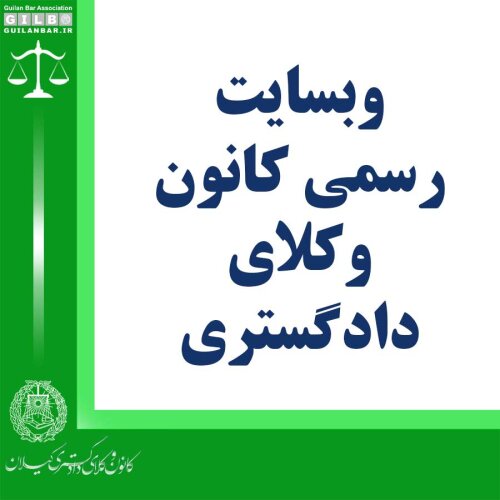Best New Business Formation Lawyers in Iran
Share your needs with us, get contacted by law firms.
Free. Takes 2 min.
Or refine your search by selecting a city:
List of the best lawyers in Iran
About New Business Formation Law in Iran
Starting a new business in Iran involves navigating various legal requirements and regulations. Understanding the laws surrounding new business formation is crucial to ensure compliance and avoid any potential legal issues.
Why You May Need a Lawyer
Engaging a lawyer specializing in new business formation can be beneficial in various situations. Whether you need guidance on the registration process, drafting contracts, or navigating complex legal issues, a lawyer can provide valuable advice and ensure your business is set up correctly.
Local Laws Overview
In Iran, new business formation is governed by the Commercial Code and other relevant legislation. Key aspects to consider include company registration procedures, tax laws, labor regulations, and intellectual property rights. It is essential to familiarize yourself with these laws to operate your business legally.
Frequently Asked Questions
1. What are the steps to register a new business in Iran?
The registration process typically involves obtaining a business license, registering with the Companies Registration Office, and fulfilling tax obligations.
2. What types of business structures are available in Iran?
Common business structures in Iran include sole proprietorships, partnerships, limited liability companies, and joint-stock companies.
3. What are the tax implications for new businesses in Iran?
New businesses in Iran are subject to corporate income tax, value-added tax, and other taxes depending on their activities and revenue.
4. How can I protect my intellectual property in Iran?
Intellectual property rights can be protected through trademarks, patents, and copyrights. It is advisable to register your intellectual property to prevent infringement.
5. Are there any restrictions on foreign ownership of businesses in Iran?
Foreign investors may face restrictions on ownership and business activities based on the type of industry and national security considerations.
6. What legal considerations should I keep in mind when drafting contracts?
Contracts should be clear, comprehensive, and compliant with Iranian contract law. Enlisting a lawyer to review and draft contracts can help avoid disputes in the future.
7. How can I resolve disputes related to my new business in Iran?
Disputes can be resolved through negotiation, mediation, or litigation in Iranian courts. Seeking legal advice early on can help prevent disputes and protect your business interests.
8. What are the employment laws I need to comply with in Iran?
Employment laws in Iran govern matters such as wages, working hours, and employee benefits. It is essential to comply with labor regulations to avoid legal repercussions.
9. What licenses and permits are required to operate a new business in Iran?
Depending on the nature of your business, you may need to obtain specific licenses and permits from regulatory authorities to operate legally in Iran.
10. How can I stay updated on changes in business laws in Iran?
Monitoring legal updates, consulting with legal professionals, and engaging with industry associations can help you stay informed about changes in business laws in Iran.
Additional Resources
For more information on new business formation in Iran, you can refer to the Companies Registration Office, Iranian Chamber of Commerce, Industries, Mines, and Agriculture, and legal professionals specializing in business law.
Next Steps
If you require legal assistance with new business formation in Iran, consider consulting with a qualified lawyer who can provide tailored advice based on your specific circumstances. Taking proactive steps to ensure legal compliance can set your new business up for success.
Lawzana helps you find the best lawyers and law firms in Iran through a curated and pre-screened list of qualified legal professionals. Our platform offers rankings and detailed profiles of attorneys and law firms, allowing you to compare based on practice areas, including New Business Formation, experience, and client feedback.
Each profile includes a description of the firm's areas of practice, client reviews, team members and partners, year of establishment, spoken languages, office locations, contact information, social media presence, and any published articles or resources. Most firms on our platform speak English and are experienced in both local and international legal matters.
Get a quote from top-rated law firms in Iran — quickly, securely, and without unnecessary hassle.
Disclaimer:
The information provided on this page is for general informational purposes only and does not constitute legal advice. While we strive to ensure the accuracy and relevance of the content, legal information may change over time, and interpretations of the law can vary. You should always consult with a qualified legal professional for advice specific to your situation.
We disclaim all liability for actions taken or not taken based on the content of this page. If you believe any information is incorrect or outdated, please contact us, and we will review and update it where appropriate.
Browse new business formation law firms by city in Iran
Refine your search by selecting a city.
















